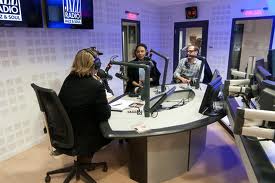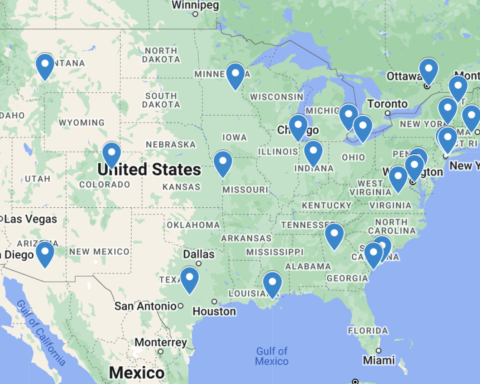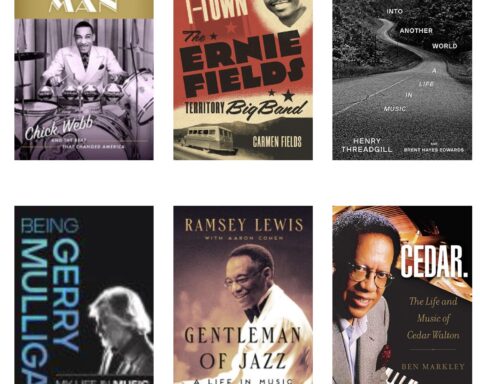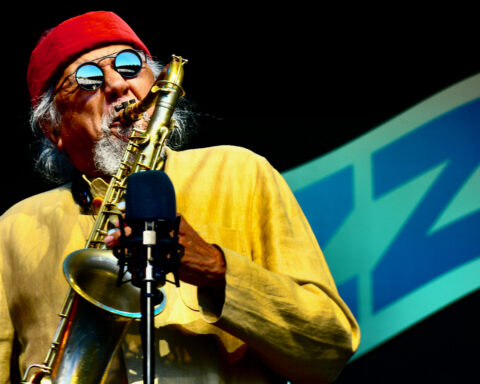When Boston’s WGBH-FM ended its weeknight jazz programming on July 6 and replaced it with repeats of  daytime talk, it made listeners long for the time when the station used “jazz all night, every night” as a tag line. WGBH reduced its jazz programming from 61 hours per week to 22 weekend hours and removed jazz from Boston airwaves on weekday evenings. Despite listeners’ protests, news/talk is king at WGBH now. It’s a situation familiar to public radio listeners nationwide.
daytime talk, it made listeners long for the time when the station used “jazz all night, every night” as a tag line. WGBH reduced its jazz programming from 61 hours per week to 22 weekend hours and removed jazz from Boston airwaves on weekday evenings. Despite listeners’ protests, news/talk is king at WGBH now. It’s a situation familiar to public radio listeners nationwide.
The nonprofit advocacy group JazzBoston called an open meeting for July 31 at the Boston Public Library to discuss both short- and long-term approaches to keeping jazz on local radio. Which raises the question: Are there alternatives for future jazz radio in Boston and elsewhere?
Many consider terrestrial radio to be the indispensable cornerstone because it always has been, but that may not always be the case. There aren’t any other premier public stations with a 100,000 watt signal and a paid professional staff available. The question becomes how to provide the widest possible access to the kind of quality programming represented by Schwartz and Jackson. In this age of media convergence, there are multiple delivery channels available, and they all have associated costs. Two of them, satellite and HD digital radio, are both unrealistic and costly. That leaves the AM/FM bands, low-power FM (LPFM), and internet radio, used as either a standalone channel or in conjunction with a broadcast station.
Is Commercial Radio Really Forbidden Territory?
It’s been years since jazz had a significant presence on commercial radio on either AM or FM, but perhaps it has a role, especially in the short term. It would entail buying a block of time on a commercial station, the same way religious groups and foreign-language programmers do. Nightclub owners for years bought radio time to promote their clubs and guests. A “Keep Jazz On Air” group could do something similar, perhaps sponsoring an hour or two a night of live radio. It would be costly. A conglomerate like Clear Channel would have no interest, but an independent station might. Start, perhaps, with WATD-FM in Marshfield, which already airs one jazz program. Or consider the overlooked AM band, where there is more local ownership than on FM.
There is a precedent for listener-supported commercial radio in Boston, at WJIB-AM. WJIB plays an adult standards format for an older audience with limited advertiser appeal. Advertising could not cover operating costs, so since 2007, the station owner appeals directly to the listeners. WJIB announces its annual budget and solicits listener donations. When it covers its budget, the station stops raising funds. Contributions are not tax-deductible, which might give potential underwriters pause, but thus far it hasn’t stopped the individual contributors.
College and Nonprofit Stations
One idea in play in Boston, proposed by blogger Steve Provizer is to build a loose network of noncommercial community or college-based stations, including WMBR and WHRB, that are not part of NPR or funded by the Corporation for Public Broadcasting. Affiliated stations would continue to program independently and would create their own jazz offerings, but could share content such as interviews or studio sessions. Stations might be unwilling to change their existing formats or programs, but slots turn over quickly on college stations and those changes would present an opportunity to put a jazz program on the air. Such an approach is budget-friendly, and takes advantage of the existing stations’ facilities and streaming capabilities.
Community-Based Radio and LPFM
The Local Community Radio Act of 2010 authorizes the FCC to again begin licensing low-power FM (LPFM) radio stations to nonprofit groups, although the FCC has yet to announce when it will open the window to accept new station applications. By itself, a 100-watt FM station with a broadcast radius of about 3.5 miles would have little impact in a crowded radio market like Boston. LPFM stations must be sited to avoid interfering with adjacent station signals, and it is doubtful a station could be licensed in the Boston/Cambridge area. Much would depend on how close to Boston a station a station could be located, and an internet stream of its broadcast would be essential.
There are hundreds of LPFM stations broadcasting around the country now, and some have a jazz format. One is WCRX-LP in Columbus, Ohio, with 12 hours of jazz daily. Given its limited range, WCRX also streams its broadcast; it needs the simulcast to reach throughout the central Ohio area that is otherwise limited to four hours of Sunday jazz on the local NPR affiliate. The nonprofit station still has work to do, but it shows a jazz community taking action to help itself. The same can be said for WGRV-LP in Melbourne, Florida. The smooth jazz station uses translators to simulcast on stations in nearby Palm Bay and Cocoa Beach as well as streaming its broadcast.
Radio and Streaming Media
Whether it’s AM, FM, or FMLP , an internet stream for simulcasting in real time is required. Online station directories like Live365.com and SHOUTcast.com list hundreds of jazz stations, from the powerhouses like WGBO and KKJZ to low-power local stations like WCRX-LP. People may not like internet radio or internet dependence, or they may not have a smartphone on which to listen to streaming media, but that’s the way the world is going.
Internet-only radio channels are emerging; one, the Pittsburgh Jazz Channel, is streaming 24 hours a day. It came about when Essential Public Media bought WDUQ-FM from Duquesne University in 2011—and promptly reduced on-air jazz from 100 hours per week to six. The out-of-work staff started the Pittsburgh Jazz Channel. They use the music programming as the basis of the PubMusic syndicated network, and as a result the channel lacks the spontaneity that would make it feel truly local. But the potential is clearly there.
Some of these ideas might work in Boston, while others might be more appropriate in a smaller market where media competition is less intense. But there’s no going back—news and talk are here to stay. Terrestrial radio is changing. Even the radio itself is changing. Marantz, among others, sells a networking receiver that receives signals from the AM and FM bands, satellite and HD digital radio, and internet streams—the latter either wirelessly or with an Ethernet cable. Whatever the future of jazz radio is, you might need a networking receiver to hear it.






WGBH does not deserve the pass Mr. Vacca seems to give them, that is accepting their 60%+ cut in Jazz as a fait accompli. For equitable treatment Jazz music deserves a high power high altitude (antenna height) FM signal and in Boston that means WGBH or WBUR among noncommercial educational stations. It should be well known that Boston has NEVER had full or part-time coverage for jazz from any commercial broadcaster in this 75+ station market. That's what I call a market failure and WGBH has been filling that gap for decades. Cancelling Jazz to offer repeats of earlier aired talk radio staggers the ordinary mind. A Petition for Reconsideration on a recently approved sale (WFNX to Clear Channel) has been filed at the FCC arguing that transfers should not be approved under delegated authority where a market failure condition exists among other things. If you're curious the text of the petition may be read here: https://docs.google.com/document/d/1d1noCIH0QXXgDtSvSBfXfj3Jra8UHZQQRVVkctkOmY0/edit
how come the moderation process takes over 48 hours? Or is my browser wrong?
The JJANews site operates with very limited staff, and the editor was attending the Philadelphia Town Hall throughout the day after Richard Vacca's article was posted. Sorry for the inconvenience.
It's pleasure to know about you.
I've worked with thousands of great players.
I have 195 tunes out there, all kinds of jazz that I would like to share with the world. In our modern times Cd's are getting like 8 track tapes. Remember.
I can send you mp3's
http://www.cdbaby.com/Search/YmFycnkgd2VkZ2xl/0
and 350 videos;
https://www.youtube.com/user/barrymwedgle/videos?view=0
Are you interested?
Thank you
best
Barry Wedgle